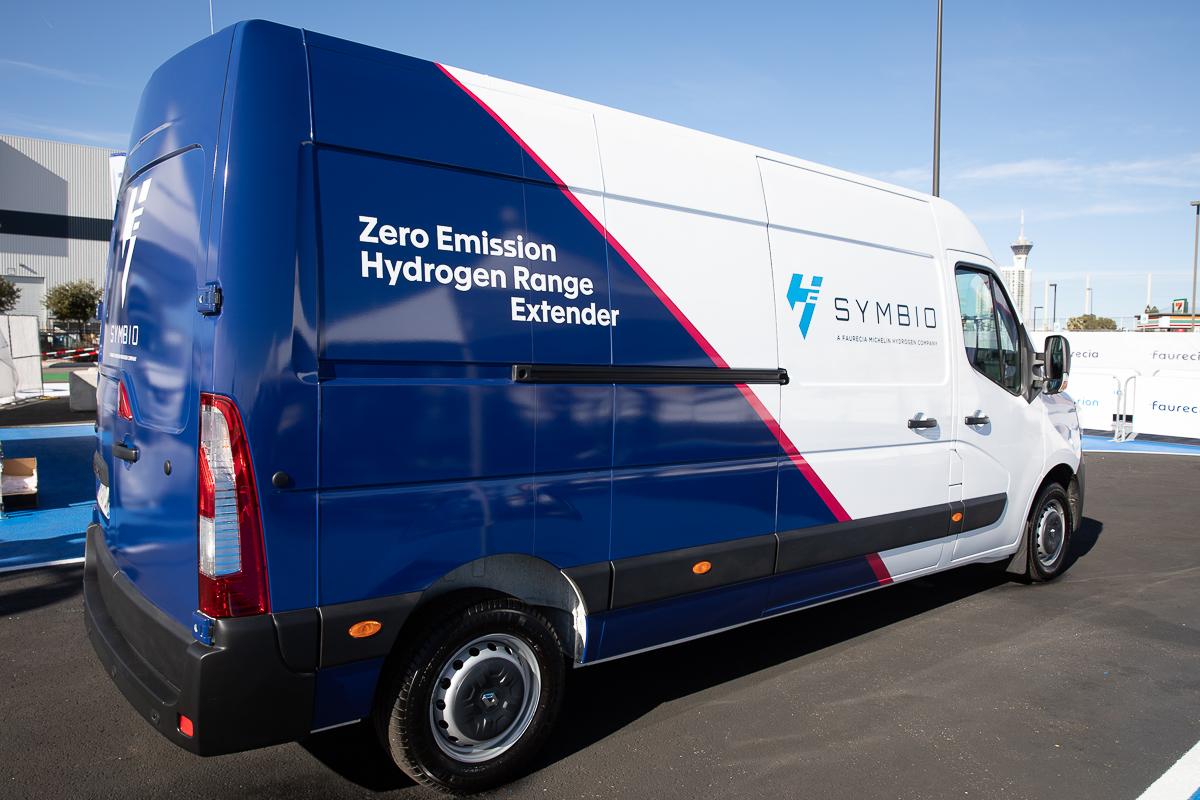 Faurecia, a global Tier 1 supplier of automotive industry, has invested over €160 million in R&D, manufacturing, strategic partnerships, and acquisitions over the recent years, with the ambition to be a world leader in hydrogen mobility. The company is well-positioned on the two key elements of fuel cell systems which represent around 70% of its value chain. These are hydrogen storage systems, which are developed by the company, and fuel cell stacks produced by Symbio, a joint venture created with Michelin.
Faurecia, a global Tier 1 supplier of automotive industry, has invested over €160 million in R&D, manufacturing, strategic partnerships, and acquisitions over the recent years, with the ambition to be a world leader in hydrogen mobility. The company is well-positioned on the two key elements of fuel cell systems which represent around 70% of its value chain. These are hydrogen storage systems, which are developed by the company, and fuel cell stacks produced by Symbio, a joint venture created with Michelin.
A game-changer for fuel cell stack systems, Symbio equips vehicles for leading European OEMs, making it well positioned to become a catalyst for the large-scale adoption of hydrogen mobility, bringing together the complementary strengths of Faurecia and Michelin.
The company is developing the next generations of hydrogen storage systems which stand at 10,000 tanks per year for commercial and light vehicles, heavy-duty trucks, and industrial applications, especially with cost-competitiveness and weight in mind. It aims to expand this exponentially to 100,000 tanks by 2025 per year across three sites, a high-capacity site in France, another site dedicated to low-volume programs also in France, and a plant in Asia to serve this key market for hydrogen mobility. The company has been awarded by three global carmakers namely, PSA, Renault and Hyundai, to equip commercial and heavy-duty vehicles with fuel cell systems. In a first milestone for the off-road segment, it has partnered with Gaussin to develop hydrogen storage systems tailored to their logistics and port vehicles.
Fuel cell systems are set to represent a market of around €20 billion by 2030, and Faurecia aims to be a world leader with 20% market share. Through innovation, technical optimization and scaling, the cost of fuel cell systems will continue to fall dramatically, and the company's objective is to divide the cost of hydrogen storage systems by four, and of stacks and other components by more than six by 2030. The company's global center of expertise dedicated to hydrogen storage systems in Bavans, France, has regrouped state-of-the-art equipment for R&D, industrial production, and safety tests under one roof. This enables it to develop new production processes and integrated technologies such as IoT sensors to lower costs, improve maintenance & durability, and accelerate industrialization.
The decade of hydrogen has arrived. The commitment made to invest in the hydrogen supply chain by various governments, regional organizations, and industrial players will prove invaluable to unlocking its potential and achieving objectives to control climate change.
For more information: www.faurecia.com